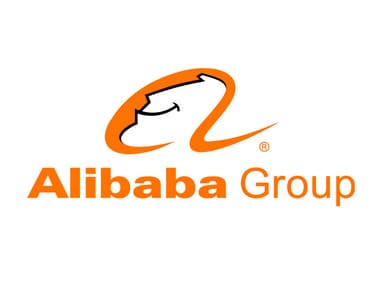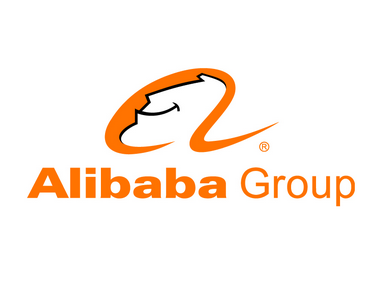Hong Kong: Hong Kong’s political unrest is posing a dilemma for Alibaba Group Holding Ltd on the timing of its planned $15 billion listing in the city, with sources saying China’s biggest e-commerce company is now considering several timetables. New York-listed Alibaba was most likely to launch the offer — potentially the world’s biggest of the year — as early as the third quarter, sources have said, and late August, after its first-quarter earnings, was widely viewed as the most likely window. [caption id=“attachment_4008161” align=“alignleft” width=“380”]  Image Credit: Alibaba[/caption] In preparation for the giant offer, bankers advising other large listings in Hong Kong have been careful to avoid planning their launches around that period, fearing that a clash of timing would crowd out their offerings. But not a word was mentioned by Alibaba on the Hong Kong listing when it released estimate-beating earnings on Thursday nor did the offer come up in the hour-long discussion with analysts after the results. Two sources involved in the deal and one other briefed on Alibaba’s discussions described the company’s thinking on the deal as “fluid” and said Alibaba was considering several timetables. Alibaba declined to comment. The Hong Kong listing deal was estimated at up to $20 billion, but is more likely to raise between $10-$15 billion, according to sources close to the deal. The listing was always expected to be a complex affair because of China’s tight control of cross-border share trading, but Hong Kong’s unrest has taken the complexity several notches higher. More than 10 weeks of confrontations between police and pro-democracy protesters have plunged Hong Kong into its worst crisis since it returned to Chinese rule in 1997 and presented President Xi Jinping with his biggest popular challenge since taking power in 2012. Tear gas has been used frequently by police while more than 700 people have been arrested. This week protesters effectively closed the city’s airport on two successive days, disrupting tens of thousands of travelers and posing a practical problem to any company considering launching a deal roadshow in Hong Kong. Under the circumstances, when Alibaba lists becomes crucial as it sends a signal to the rest of the world on the state of Hong Kong as a business and financial center and provides a window into China’s reading of the situation. “How do you think Beijing feels about giving Hong Kong a $15 billion gift like this, right now?” asked one capital markets professional not involved in the Alibaba deal. Market Hopes A listing by Alibaba is a big deal for Hong Kong, which loosened its rules last year specifically to lure overseas-listed Chinese tech giants to list closer to home. Alibaba would be the first to test the new system. Asked this week whether Hong Kong’s turmoil would affect its listing, Hong Kong stock exchange chief executive Charles Li avoided directly acknowledging the company’s application, which is still technically confidential. But Li added, “I am confident that companies like that ultimately will find a home here, because this is home and I think they will come. I don’t know when though.” Alibaba’s Hong Kong listing is also sensitive for China, which has been working to give mainland investors a bigger role in funding the country’s fast-growing tech sector. Officials are conscious that capital controls and the US listing preference of most of China’s first-generation tech giants mean that international shareholders have profited far more from their success than local investors. Mainland investors can buy Hong Kong shares through the so-called Stock Connect, which allows investors in Shanghai, Shenzhen and Hong Kong to trade shares listed on each others’ exchanges. But the inclusion of Alibaba’s Hong Kong shares in the Stock Connect is not guaranteed because the scheme does not yet allow mainland buying of companies which have weighed their voting rights in favor of founders, such as smartphone maker Xiaomi (1810.HK) and Meituan Dianping (3690.HK), the online food delivery-to-ticketing firm. Both took advantage last year of another Hong Kong rule change to float in Hong Kong with weighted voting rights structures. While Alibaba has a single class of shares with equal votes, its governance is not considered standard since its board is controlled by a self-selecting group of company insiders. Chinese regulators have said they will allow local investors to trade companies with weighted voting rights, but have not yet set a date for doing so. Technical Hurdle Alibaba’s deal must also overcome one other technical hurdle — it must gain the approval of the city’s listing committee, a 27-strong independent group of industry professionals whose consent is needed for all first-time share sales. The company has been in discussions with the committee but has not yet appeared before the group at one of its regular Thursday hearings for formal approval, according to three sources. So far only Credit Suisse and CICC, the Chinese investment bank, have been mandated for the mega-listing, sources said, although several other banks are jockeying for a role on the deal, they added. All are expected to be urging caution on the listing given the size of the deal and the political and market considerations. One senior banker not involved said it made no sense to move too quickly. “Why would Alibaba rush to kick it off?” he asked.
The protests in Hong Kong have added to the complexity of Alibaba’s listing in the city, already difficult because of China’s tight control of cross-border share trading
Advertisement
End of Article


)

)
)
)
)
)
)
)
)



